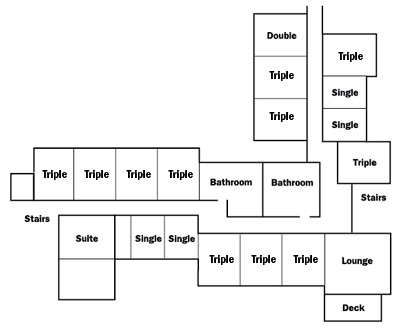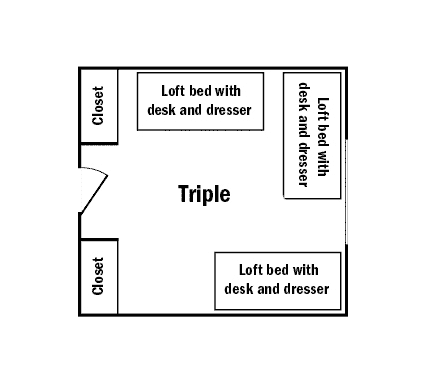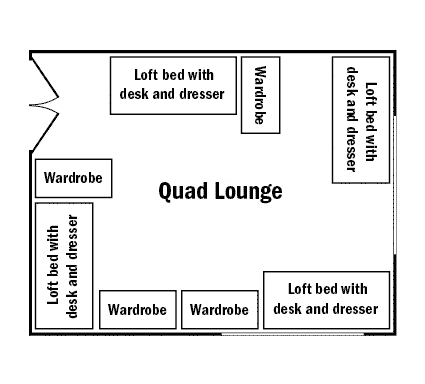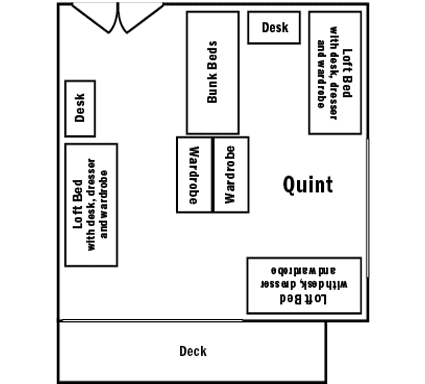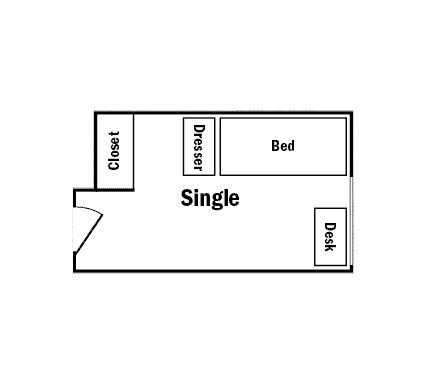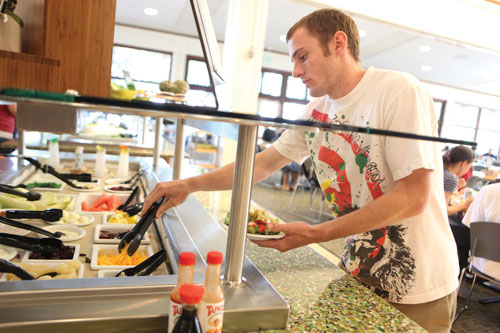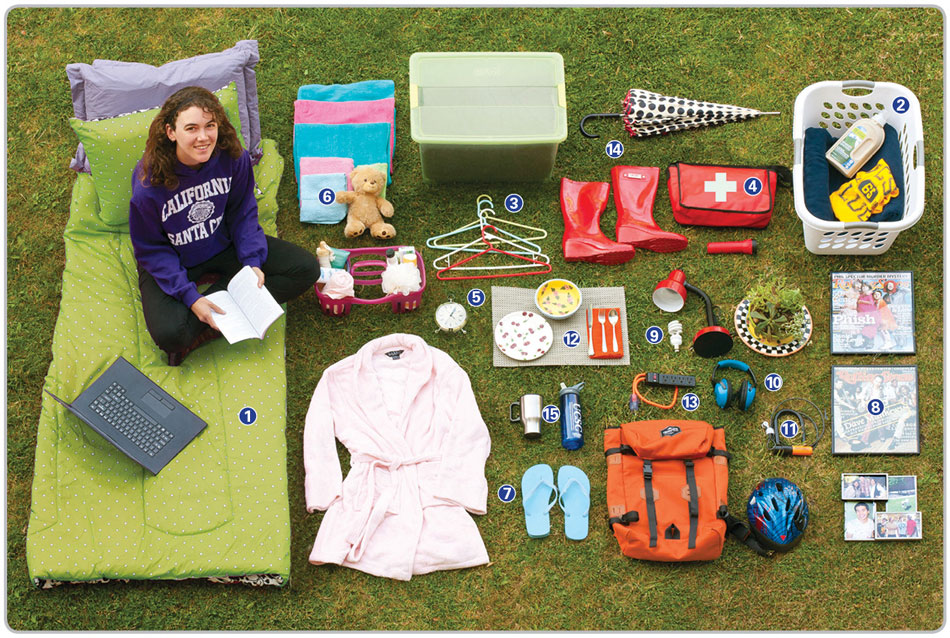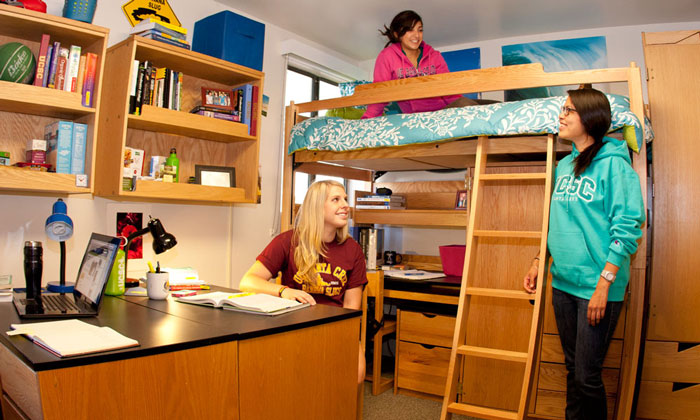
The Housing Application
When you complete your online housing application you will have the opportunity to rank preferences for various room and theme options. This will give us an idea of the types of housing you are most interested in.
You will also be asked to complete a Lifestyle Questionnaire. Roommate assignments are based on the questionnaire so it is in your best interest to answer the questions as fully, thoughtfully and honestly as possible. Specific roommate requests may be met as long as they are mutual.
Your Housing Experience
Assigning rooms and roommates is not an easy task. Your roommates may or may not become your best friends, but will surely be remembered simply because of the experiences you will share. We will do our best to find you compatible roommates, but please do not assume they will share all your lifestyle preferences. Regardless of where you live, remember one thing: much of what living on campus really offers is what you and students like yourself bring to it.
Your attitude toward, and your enthusiasm for, your new living situation is the real key in determining what your new life will be like. We do promise one thing… given the opportunity, we will do all we can to make you feel welcome and at home.
